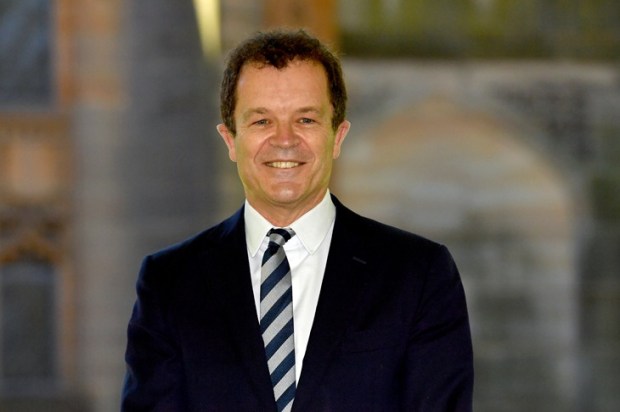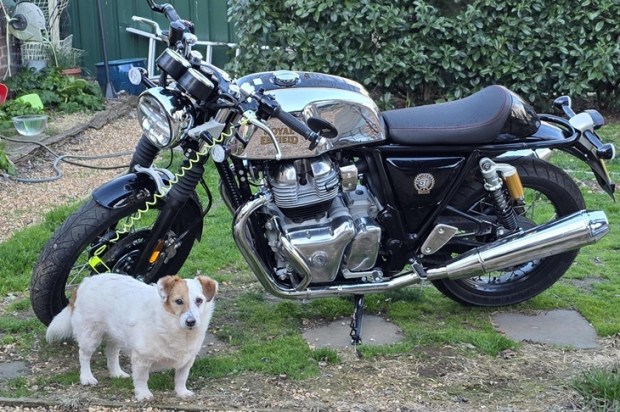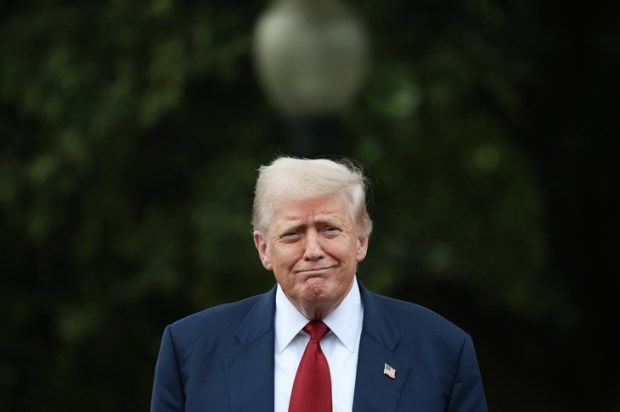As I prepared to write this article, I went to pour a glass of wine. When I returned to my study, my television had turned itself on. In a black and white movie, the actor was playing a violin, surrounded by children singing, Hark! The Herald Angels Sing. I immediately retold the story to my local padre, an Anglican priest and army chaplain who leads our RSL services. He remarked that it was clearly a sign that I must not be a doubter and that I must tell my story truly and well.
I was not Christened as a child. My parents wanted me to make my own choices. When I discovered my father’s Book of Common Prayer in the linen press one day when I was about seven, I demanded of my mother, ‘What is this and why wasn’t I told?’
A few months later, a lady knocked on our door. ‘Would like you to know about God?’ she asked. As my mother replied with an emphatic, ‘No!’ I jammed my foot in the door and said, ‘Yes, I would.’ We sat on the fence out the front and she explained Genesis to me. It was the beginning of a quest for knowledge about religion and later, theology. Eventually, I would learn the importance of tradition, but only after much ‘gnashing of teeth’.
Whenever we had ‘Religion’ at school, I referred to myself as a ‘non-sectarian’ and sat outside on the verandah with the Buddhist kid. We pretty much read while we waited for everyone else to do whatever they did in ‘Religion’ class.
In high school, we were required to attend ‘Religion’ class unless we had a note to excuse us. Long story short, I went up to the woman in charge of ‘Religion’ and I said to her, ‘Look, you know I don’t want to be here, and I know that you don’t want me to be here. All I want to do is to go to the Music Block and play my saxophone. Either you give me a note excusing me from Religion, or I will make you beg me to go.’
I wasn’t joking, and she knew it. I had two extra hours each week to practice playing my sax. I was so self-assured. Ignorance really is bliss.
Years later, I woke up one morning and looked at the ceiling and said to myself. ‘I either change my life or end it today.’ (I didn’t know then that my thinking had precedent in the Stoics and Albert Camus’ Myth of Sisyphus. The late literary critic Harold Bloom wrote that such original moments that prove to be unoriginal remind us of our individual connection to the greater society.)
I hated my job (it was a good job) but I wanted more. My father said my problem was that ‘I was never satisfied’ and I responded as any working-class kid would back then, ‘Der!’
So, I joined the army.
Religion, however, would not leave me alone. From my unwashed upbringing, I learnt the importance of our traditions.
My first military parade was a church parade. I recall my first thought, ‘What’s this? I thought I was going to learn how to fight!’
Later, at a family reunion held in Gunnedah, I discovered that my great-great-grandfather was a sergeant-major leading the Guyra Corps of the Salvation Army, circa 1892. It made sense why my grandfather would enthusiastically make me buy copies of The War Cry whenever the Salvos came to the RSL.
When I exceeded all expectations and was accepted into the Royal Military College, Duntroon, I decided to become an adherent of the Salvation Army. I didn’t want to have my religion as ‘nothing’ (there are no atheists in foxholes) on my dog tags (to use the US moniker). I also dedicated my two sons, not wanting them to suffer my own lack of direction provided by my, well, let’s just say ‘bohemian’ and ‘libertarian’ parents.
When I left the regular army, and honouring my family’s tradition, I ended up becoming a local officer of the Salvation Army. In addition to mediocre performances in roles such as the Red Shield Appeal coordinator and the local disaster relief counsellor, I excelled as the Songster leader and Deputy Bandmaster. Maybe there was a plan for all that saxophone practice.
One Clean Up Australia day Sunday, I had several local ‘homeless’ lads who were now going to school and had cleaned up their act and were due to have their pictures in the paper with a local councillor presenting them with outdoor equipment for use on weekends. I was promptly told that I had to abandon the event because I was required at church on Sunday. I resigned that day and drank a beer for the first time in years that night. The kids went back to their old ways.
Given my libertarian leanings, I hate bureaucracy when it loses its raison d’être. I returned to my family’s Anglican tradition (even though they were Salvos, they were all officially Anglicans) and brought my lads with me. It was much easier to be ‘relaxed and comfortable’ as an Anglican. That has not stopped me exploring theology.
However, after cleaning up my study recently, I walked in to find my cat had gone on a religious rampage. All my crucifixes and a figurine of a Korean priest had been knocked off the mantelpiece and were banged up or in pieces. He had gone into the fireplace and black soot footprints were everywhere. A while back, I had read the Qur’an and the Book of Hadith while this cat sat draped over my arms. It had me wondering.
The next night, I heard a commotion in my study and found everything I had repaired was once again strewn about. It wasn’t a cat, but a possum that had come down the chimney. I was livid. I grabbed my snake re-locator (a post hole shovel) but it was not to be. A clash of values was imminent.
For me, my home is my castle and ‘the state’ stops at my front door. Rodents are not welcome either.
But under threat of estrangement, I was not able to ‘relocate’ the possum. My girlfriend, who has a set of gloves specifically for bravely moving lizards and other animals off roadways, insisted that she would capture it in a cat box and we would relocate it properly.
My study was duly ransacked by the possum jumping around the room like a – well, a wild possum. I refused to ‘grab it by the tail and put it in the box’. I also insisted that if I could not exercise my values and ‘relocate’ the possum my way, my girlfriend should exercise hers and coax the possum into the cat box.
Hours later, her talent for creating good karma meant she had succeeded. Hours later still, with the possum properly relocated, my study was returned to some semblance of order.
I was pleased to know my faithful cat was not an extremist nor had he succumbed to the possum-devil. I was also impressed by my girlfriend’s persistence in doing what she thought was right. Which brings me to my point.
The Ancient Stoics permeate the Anglican tradition. They taught that happiness rests on our ability to see what is within our control and what is not. If it’s not in our control, then one should view external events as opportunities to practice our virtues. One should also not leave one’s happiness contingent upon ‘things’ that can be broken, stolen, or taken from us. (Lest a wild possum should enter one’s study, for example.) But as Jesus said, ‘It is easier for a camel to go through the eye of a needle, than for a rich man to enter into the kingdom of God.’
Although not a planned part of this story, the wild possum proved to be a case in point.
Moreover, in my local Anglican church, there is a stained-glass window depicting Sir Galahad, the God-fearing knight of Arthurian legend and son of Sir Lancelot. In the Anglican tradition, Sir Galahad is often used to represent those who gave the ultimate sacrifice in wartime.
While Jordan Peterson, Tony Abbott, and Greg Sheridan have been prominent Catholic apologists, Sir Niall Ferguson is one of a few emerging apologists for the Anglican tradition. Like Peterson, Ferguson is returning to his faith through his wife’s inspiration. It is timely that our Anglican traditions are revived in Australia, too.
In a 2003 New York Times article, Ferguson attributed the decline in Protestantism in Western Europe, and hence the Protestant work ethic, to Europe’s poor productivity compared with the United States.
While the Anglican tradition in the United States materialised as the Episcopal Church following the American Revolution, the Order of Sir Galahad was established in Boston in 1896 to ‘serve the boyhood of the Parish and thus to increase the Manhood of the Church’. The New World embraced what the Old World had forgotten.
Regrettably, identity politics has infiltrated the Anglican tradition in Australia, and the meaning of the stained-glass window depicting Sir Galahad, is disappearing as are our remaining second world war veterans. Christians are disappearing in Australia, too.
According to Statista, Australia’s ‘dominant Christian identity appears to be shifting’ with almost as many people claiming to have no religious affiliation as those identifying as Christians.
Indeed, identity politics and its focus on diversity of identity may well bring about Australia’s productivity downfall as it has done in Western Europe. However, it is the wrong way to approach diversity, for which Christianity has remedy.
In 1 Corinthians 12:4-6, Paul wrote:
Now there are diversities of gifts, but the same Spirit. And there are differences of administrations, but the same Lord. And there are diversities of operations, but it is the same God which worketh all in all.
Diversity of gifts and in ways of doing work well within a framework that supports the common good. But living in a vacuum is not freedom, it is chaos. Or as Thomas Hobbes (his father was a vicar in the Church of England) wrote, ‘Solitary, poor, nasty, brutish, and short.’
Like our values, we must exercise our Anglican traditions and bring a sense of order back to our communities. We must not allow the proverbial possum to run rampant and destroy our past. We must use it or lose it.
Note: No rodents or any other animals were harmed or treated illegally in the making of this story.
Dr Michael de Percy @FlaneurPolitiq is a political scientist and political commentator. He is a Fellow of the Royal Society of Arts, a Chartered Fellow of the Chartered Institute of Logistics and Transport (CILTA), and a Member of the Royal Society of NSW. He is Managing Editor of the Journal of Telecommunications and the Digital Economy, Chairman of the ACT and Southern NSW Chapter of CILTA, and a member of the Australian Nuclear Association. Michael is a graduate of the Royal Military College, Duntroon and was appointed to the College of Experts at the Australian Research Council in 2022. All opinions in this article are the author’s own and are not intended to reflect the views of any other person or organisation.


























